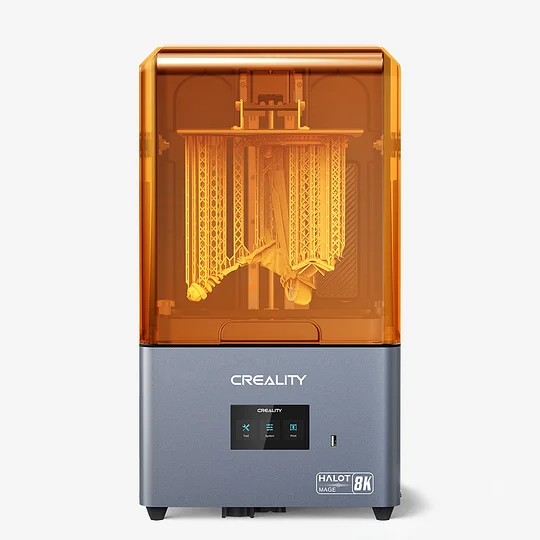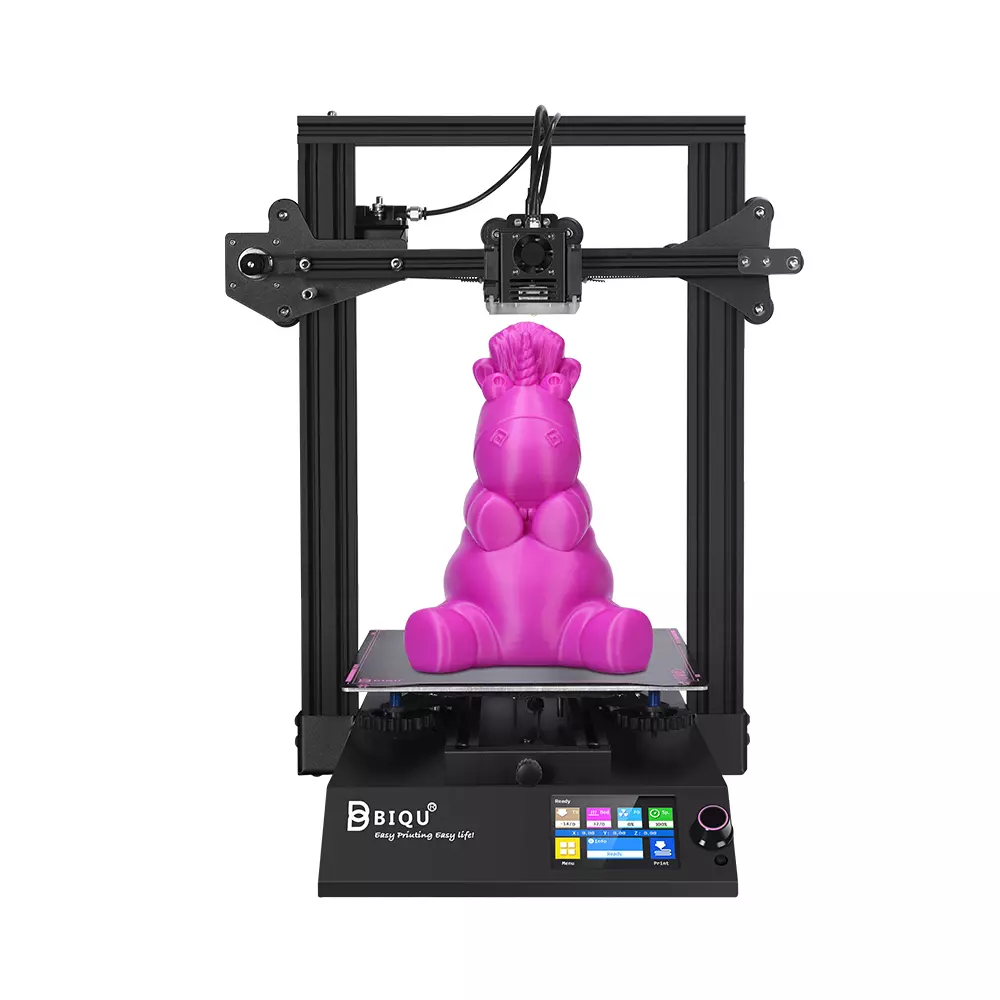Compare Halot Mage vs BIQU B1
Comparison between the best 3D printers
Choose the best 3D printer at the best price. The cheapest 3D printers are here.
Buy a 3D printer here with 3D Fila.
 |
 |
|
| Model | Halot Mage |
BIQU B1 |
| Printing Material | Resin | Filament |
| Buy Resin for Creality 3D Halot Mage | Buy Filament forBigTreeTech BIQU B1 | |
| Estimated price | $399,00 | $269,00 |
| Manufacturer | Creality 3D | BigTreeTech |
| Release Year | 2023 | 2020 |
| Print Volume [mm] | 228x128x230 | 235x235x270 |
| Printer Size [mm] | 333x270x608 | 412x402x492 |
| Weight [kg] | 12 | 8,00 |
| Power Loss Recovery | NO | YES |
| Maximum Resolution [mm] | 0,01 | 0,1 |
| Processor | 32 Bits BTT SKR V 1.4 | |
| Display | Display touchscreen 4,3'' | Touchscreen TFT 3,5'' |
| Power Supply | 100 W | 24V / 360W |
| Connectivity | USB | SD / USB |
| Operating systems | Windows, Mac, Linux | Windows, Mac, Linux |
| Date of registration in the system | 2023-05-23 | 2021-04-14 |
| Release date | 2023 | 2020 |
| Extra features | The Halot Mage stands out with its easy-to-operate, space-saving MageArch hinged lid that filters 99.89% of UV light. It includes an integrated air purifier with a large, efficient activated carbon filter that is ideal for absorbing resin odors. Its ultra-stable Z-axis with dual linear rails ensures larger, more accurate prints with minimal wobble. Plus, it features a robust tempered glass LCD protector for durability and protection against impacts and resin spills. | The BIQU B1 is an advanced 3D printer with a silent 32-bit BTT SKR V1.4 motherboard and ARM Cortex-M3 CPU, offering DIY interfaces (I2C, SPI, WiFi) and dual Z-axis. Its dual BTT B1 TFT35 V3.0 operating system allows real-time monitoring and multiple printing modes, including G-code visualization effects. It stands out for its BIQU SSS (Super Spring Steel), ensuring easy model adhesion and simplified removal, with the possibility of using it on both sides. It includes a filament sensor, automatically pausing printing in case of filament breakage. The multicolored RGB lights integrated into the hotend allow you to view the printing status even at night. Additional notes include the need for a BIQU-specific Type-C cable and extra interfaces for smart filament sensor and BL Touch. |
| Support for multiple colors and materials (AMS and CFS) | NO | NO |
Notes * |
||
| Cost-benefit | 8 / 10 | 7 / 10 |
| Hardware | 4 / 10 | 2 / 10 |
| Tela | . | . |
| Print volume | 3 / 10 | 3 / 10 |
| Performance | 9 / 10 | 1 / 10 |
Conclusion |
| In comparing the Halot Mage and the BIQU B1 3D printers, it becomes clear that each model offers distinct advantages tailored to different user needs and budgets. The Halot Mage, positioned at a higher price point, brings several innovative features to the table. Its ultra-stable Z-axis and easy-to-use design, combined with an integrated air purifier and a UV light filtering lid, make it particularly appealing for those focused on high-quality, resin-based printing. The printer's exceptional resolution capability and robust construction lend themselves well to larger and more complex print jobs, making it a solid choice for professionals or serious hobbyists. Its performance ratings indicate a high level of reliability and quality. On the other hand, the BIQU B1, while more affordable and portable, has some limitations in terms of print resolution and overall performance. However, it compensates with user-friendly features like a dual Z-axis, filament sensor for automatic pause, and creative elements like RGB lights for print status monitoring. Its simpler setup may appeal to beginners or casual users looking for a reliable yet cost-effective machine for standard printing projects. Ultimately, if budget and premium features are paramount, the Halot Mage is the superior choice, especially for detailed projects requiring high precision and sturdiness. Conversely, for those seeking a more economical solution with decent functionality for everyday printing tasks, the BIQU B1 presents a viable option. Users should weigh their specific printing needs against budget considerations to make the best selection. |

